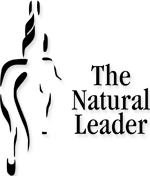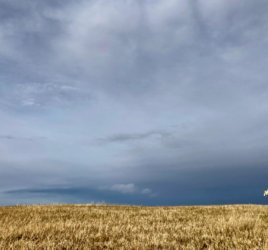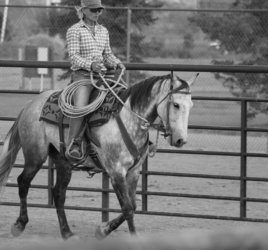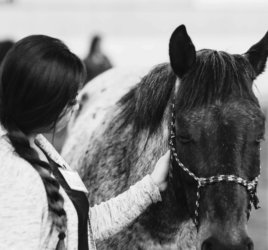Learning from the Herd
At first glance, the herd is a fairly static environment with roles, responsibilities and daily schedules. A horse is a highly social animal which means a range of interactions but the herd is both constant and ever changing reflecting a routine set by the seasons, the weather and us.
Our herd is a mix of geldings, mares and one donkey ranging in age from two to sixteen. Observing them over the years highlights the similarities and the subtle changes that emerge as the number of horses has grown. In Animals Make Us Human, Temple Grandin suggests it is the horse’s very social nature that has made them so easy for us to domesticate – they don’t mind when territories cross, they are willing to live together in a created herd and they have a built in desire to cooperate.
A domestic herd is limited by the space they have to share, don’t have much of a choice as to who joins them and within limits they get along pretty well. With those parameters it is relatively easy to pull parallels from the herd to the workplace. To work well in a team we often need to be able to manage an open office environment, work with individuals we might not choose to spend time with and cooperation is not always the hallmark of being human.
Like a workplace team, the herd also has to deal with internal and external influences. Internal change is far more fluid than the stresses that we inflict on them but what is interesting and most reflective of workplace is how the herd collectively manages external stress.
From time to time change is imposed on the herd whether it’s adjusting the clock, adding a new member or splitting the herd up a change can be fiercely defended. Generally horses are not great at managing change and they treat change with the commitment of a life and death scenario. The herd quickly becomes a cohesive unit acting and responding in the interest of the group, old alliances are strengthened and new bonds are created, working together to either accept or repel the influence.
Change seems to be a constant that we cannot repel or ignore, but what we can do is manage how it impacts us personally. While we often feel alone in the turmoil of change supporting others through the process is another innate human characteristic. The herd demonstrates the importance of sticking together and supporting others while being open and willing to accept and adapt to what shows up.



